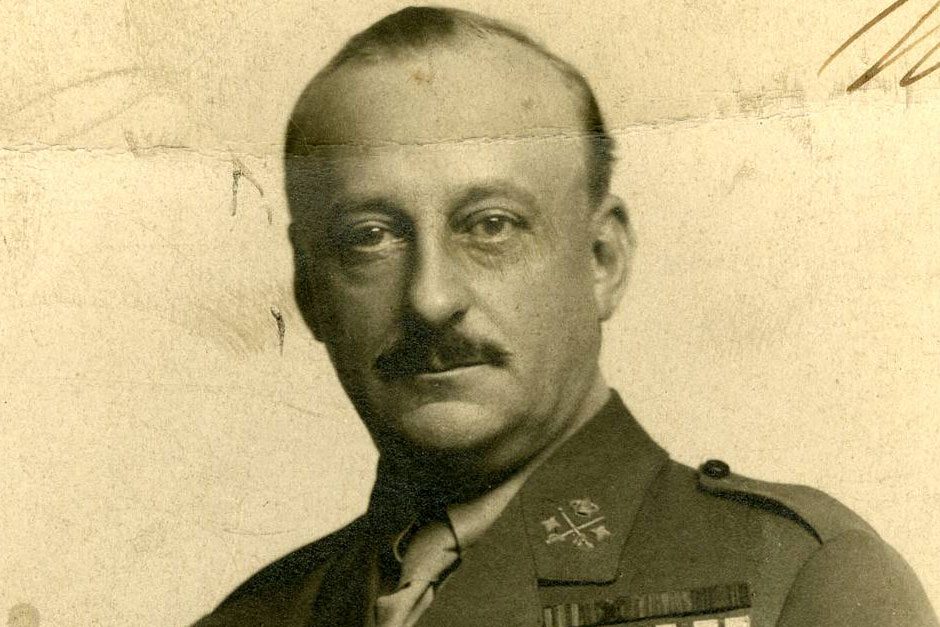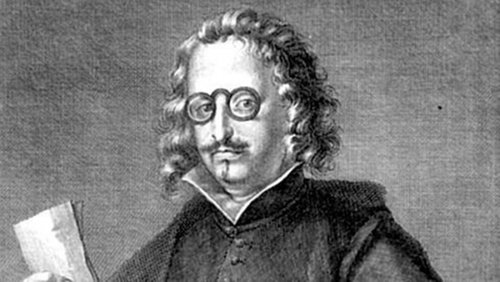September 14
Saints Days: Victor. The Exaltation of Sana Cruz. The Exaltation of Escuela Cristiana
1593 - Argentina: the Spanish Francisco Murguia Argañaraz and founded the city of San Salvador de Jujuy.
1923 - Miguel Primo de Rivera became a dictador.

Miguel Primo de Rivera y Orbaneja, 2nd Marquess of Estella (8 January 1870 – 16 March 1930), was a dictator, aristocrat, and military officer who served as Prime Minister of Spain from 1923 to 1930 during Spain's Restoration era. He deeply believed that it was the politicians who had ruined Spain and that by governing without them, he could restore the nation. His slogan was "Country, Religion, Monarchy." Historians depict him as an inept dictator who lacked clear ideas and political acumen, and who alienated his potential supporters such as the army. He did not create a base of support among the voters, and depended instead on elite elements. His actions discredited the king and ruined the monarchy, while heightening social tensions that led in 1936 to a full-scale Spanish Civil War.
On the death of his uncle in 1921 he became Marquess of Estella. With the support of King Alfonso XIII and the army, Primo de Rivera led a Mussolini-inspired military coup on 13 September 1923. He was appointed Prime Minister by the King. He promised to eliminate corruption and to regenerate Spain. In order to do this, he suspended the constitution, established martial law, imposed a strict system of censorship, and ended the turno (spoils) system of alternating parties.
Primo de Rivera initially said he would rule for only 90 days, however, he chose to remain in power. Little social reform took place, but he attempted to reduce unemployment by spending money on public works. To pay for this, Primo de Rivera introduced higher taxes on the rich. When they complained he chose to change his policies and attempted to raise money by public loans. This caused rapid inflation and—after losing support of the army—he was forced to resign in January 1930. After his death, his son, José Antonio Primo de Rivera, played an important role in the development of fascism in Spain. It was under Primo de Rivera's rule that Francisco Franco was promoted to general, the youngest person holding this high rank in Europe
1999 - Britannia Airways Flight 226A, a charter flight from Cardiff, crashes at Girona Airport, resulting in one death and 43 injuries.
Births
1580 - Francisco Gómez de Quevedo, poet and politician born in Madrid writer of the Baroque era. Along with his lifelong rival, Luis de Góngora, Quevedo was one of the most prominent Spanish poets of the age.

Quevedo's father, Francisco Gómez de Quevedo, was secretary to Maria of Spain, daughter of emperor Charles V and wife of Maximilian II, Holy Roman Emperor, and his mother, Madrid-born María de Santibáñez, was lady-in-waiting to the queen. Quevedo matured surrounded by dignitaries and nobility at the royal court. Intellectually gifted, Quevedo was physically handicapped with a club foot, and myopia. Since he always wore pince-nez, his name in the plural, quevedos, came to mean "pince-nez" in the Spanish language.
Orphaned by the age of six, he was able to attend the Imperial School run by the Jesuits in Madrid. He then attended university at Alcalá de Henares from 1596 to 1600. By his own account, he made independent studies in philosophy, classical languages, Arabic, Hebrew, French and Italian.
In 1601, Quevedo, as a member of the Court, moved to Valladolid, where the Court had been transferred by the King's minister, the Duke of Lerma. There he studied theology, a subject that would become a lifelong interest, and on which in later life he would compose the treatise Providencia de Dios (God's Providence) against atheism.
By this time, he was becoming noted as both a poet and a prose writer. Some of his poetry was collected in a 1605 generational anthology by Pedro Espinosa entitled Flores de Poetas Ilustres (Flowers by Illustrious Poets).
We can also date back to this time the first draft of his picaresque novel Vida del Buscón – apparently written as an exercise in courtly wit – and a few satirical pamphlets that made him famous among his fellow students and which he would later disown as juvenile pranks.
1846 - Joaquín Costa, politician.
1897 - Eduardo Blanco Amor, writer and journalist.
1926 - María del Carmen Franco, Duchess of Franco and of Spain, the only daughter of Francisco Franco and his wife, Carmen Polo. Marquesa widow of Villaverde.
1942 - Félix Pons, politician (d. 2010)
1948 - Mario Conde, financier and lawyer
1950 - Matías Prats Luque, journalist.
1969 - Malena Gracia, actress and model.
1986 - Michelle Jenner, actress.
Deaths:
1709 - Luis Fernandez de Portocarrero, ecclesiastical and politician, archbishop of Toledo.
1800 - Juan Ignacio González del Castillo, playwright.
1904 - Manuel Ossorio y Bernard journalist
1916 - Jose Echegaray y Eizaguirre, mathematician, playwright, politician and engineer Caminos, who made important contributions to mathematics and physics, Nobel Prize for Literature in 1904. (b. 1832)
1942 - Rubén Ruiz Ibárruri, communist soldier, Hero of the Soviet Union a título póstumo.
1960 - Eloy Vaquero Cantillo, politician.
1977 - Sandra Mozarowsky, actress (b. 1958)
1989 - Nicolás Cabrera, scientist (b. 1913)
2006 - José Antonio Nieves Conde, filmmaker and journalist (b. 1911)
2007 - Emilio Ruiz del Rio, filmmaker.
2014 - Isidoro Alvarez, businessman, president of El Corte Ingles and chairman of the board of the Ramon Areces Foundation.
